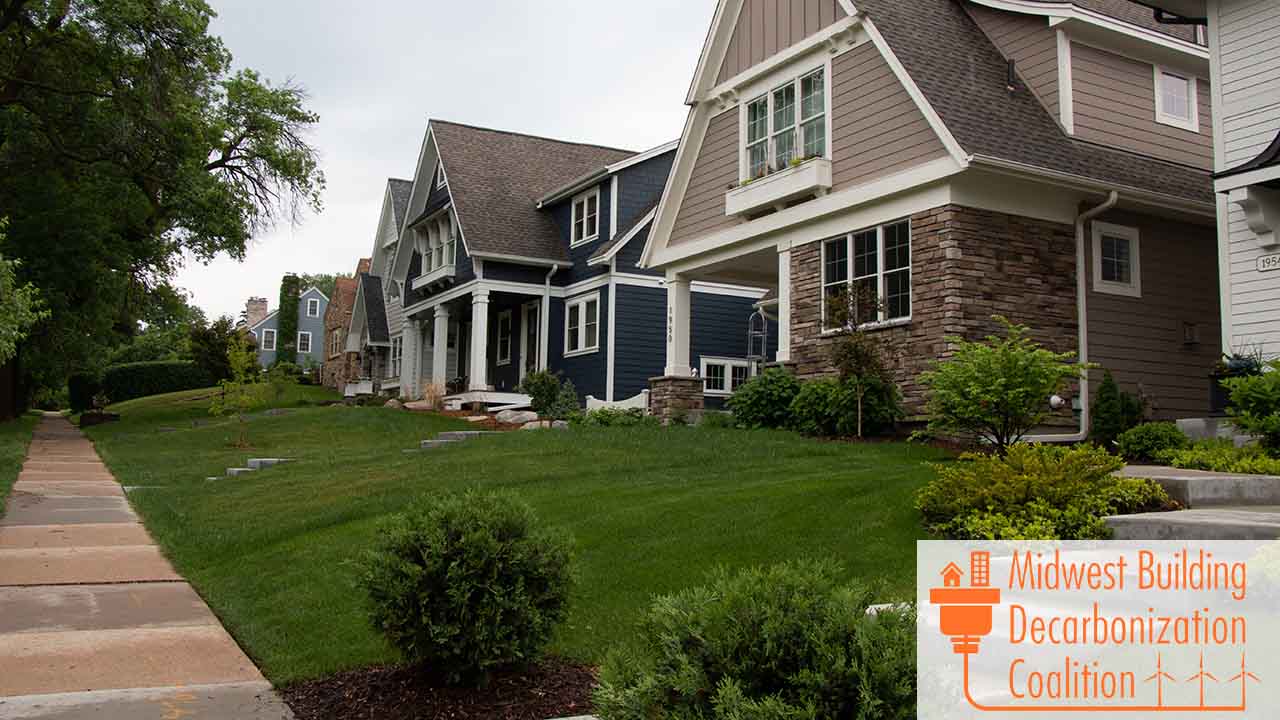
Fresh Energy is proud to be a member of the Midwest Building Decarbonization Coalition and is excited to collaborate with the coalition in a time of historic opportunity for climate, energy, and environmental justice at the federal level.
Midwest BDC was incubated by Fresh Energy and now in its fourth year is a thought leader in supporting equitable deep decarbonization strategies across the Midwest building sector. Midwest BDC brings local, state, regional, and national stakeholders together to learn from one another and seize the opportunity to affect a just energy transition by centering Environmental Justice communities who have been ignored, polluted, and pushed into unaffordable housing and debt.
Recently, the Midwest Building Decarbonization Coalition (MWBDC) has been leading a cross-sectional group of clean energy, equity, and climate advocacy organizations across the Midwest in filing comments on federal environmental justice and climate initiatives.
The Environmental Protection Agency (EPA)’s new Environmental and Climate Justice (ECJ) program has been tasked with distributing three billion dollars of Environmental and Climate Justice Block Grants from the Inflation Reduction Act (IRA). When the IRA was passed and information and intentions for the pot of money were announced, many members of Environmental Justice Communities shared mixed feelings.
On one hand, there was excitement at the prospect of applying for funding, but that was coupled with concern about how these funds would be distributed equitably. Combing through hundreds of grant applications is no small task for the EPA, but applying for these grants—especially for the organizations and communities they’re intended to benefit—is a huge undertaking. Community-based organizations are often not aware funding is available, and most do not have full-time grant writers on staff to work within tight deadlines. Applying for federal funding can often feel confusing, bureaucratic, and overwhelming.
In an effort to make the ECJ program more inclusive of the folks it is intended to benefit, the EPA opened a Request for Information (RFI) for public input on the program. Submitted comments could speak to reducing application barriers, overall program design, types of projects to fund, reporting and oversight, and more. Coalition members were eager to submit comments and offer suggestions for how the funding program could be made more equitable and live up to its mission of “empower[ing] community efforts to confront and overcome persistent pollution challenges in underserved communities.”
Submitted comments could speak to reducing application barriers, overall program design, types of projects to fund, reporting and oversight, and more. The agency is required to consider all comments it receives while crafting the program, so it’s vital that the communities who are intended to benefit from this funding take the opportunity to make their voices heard and offer suggestions to the EPA.
In order to uplift the thoughts of as many folks in the MWBDC as possible, members of the coalition thought this was the perfect project for its Federal Policy working group to tackle. This working group, led by MWBDC Member James Trice, empowers Midwest advocates to capitalize on federal funding allocated in 2022-23 for building energy and climate mitigation work via the Bipartisan Infrastructure Investment and Jobs Act (IIJA) and the IRA, with a specific emphasis on upholding federal Justice40 commitments. When an opportunity to offer diverse perspectives and advocate for the interests of small, community-based organizations and environmental justice communities, it’s the perfect time for this working group to get involved!
The Process
Working across industries and backgrounds are important pillars of MWBDC’s working groups, bringing as many voices and perspectives into the room as possible. This focus on collaboration also helps us to rise to challenges that would be daunting to tackle alone. The amount of time between a federal agency announcing a RFI and the deadline to submit comments can be extremely brief. In this case, even after a deadline extension, the MWBDC Federal Policy working group only had two meetings to:
- Read through all the questions asked by EPA and determine which we would respond to
- Engage in group discussions on each individual question and identify priorities and key points to raise
- Crowd-source supporting resources, data, anecdotes, and existing program models we could encourage EPA to emulate
- Concisely state answers and examples in under ten pages
Following the second meeting, MWBDC staff synthesized the working group’s notes into a draft of written comments for the working group to review. Final revisions were made, and then the final draft was submitted to the EPA.
The Coalition’s Suggestions
The throughlines described in MWBDC’s final comments highlight that the EPA should work to “center local leadership, decision-making, and investments in local organizations or businesses based in, or having an established history of working in, the identified disadvantaged EJ community.” By directly funding folks who are already doing the work, the EPA can support sustainable, community-driven change. MWBDC also encouraged the EPA to include members of Environmental Justice communities when evaluating grant applications, which will offer greater perspectives and insight into aspects of the proposals that the EPA may overlook or be unfamiliar with due to their lived experience.
MWBDC’s comments also raised the importance of qualitative, community-led metrics of success – encouraging the Agency to think beyond numerical deliverables when evaluating the results from grantees. By allowing organizations that receive funding to set their own goals and desired outcomes, the ECJ Program will empower recipients to honor the diversity of needs in their respective communities across the United States. We know that there is no one size fits all solution to the problems Environmental Justice communities are facing, and hope that the EPA reflects this truth in their Environmental Justice work.
You can view MWBDC’s final submitted comments here, along with all 181 comments submitted to EPA. If you’re interested in participating in the MWBDC’s Federal Policy working group, let them know! Thank you to Jacob Serfling, James Trice, and everyone who worked to put these comments together under a time crunch.
